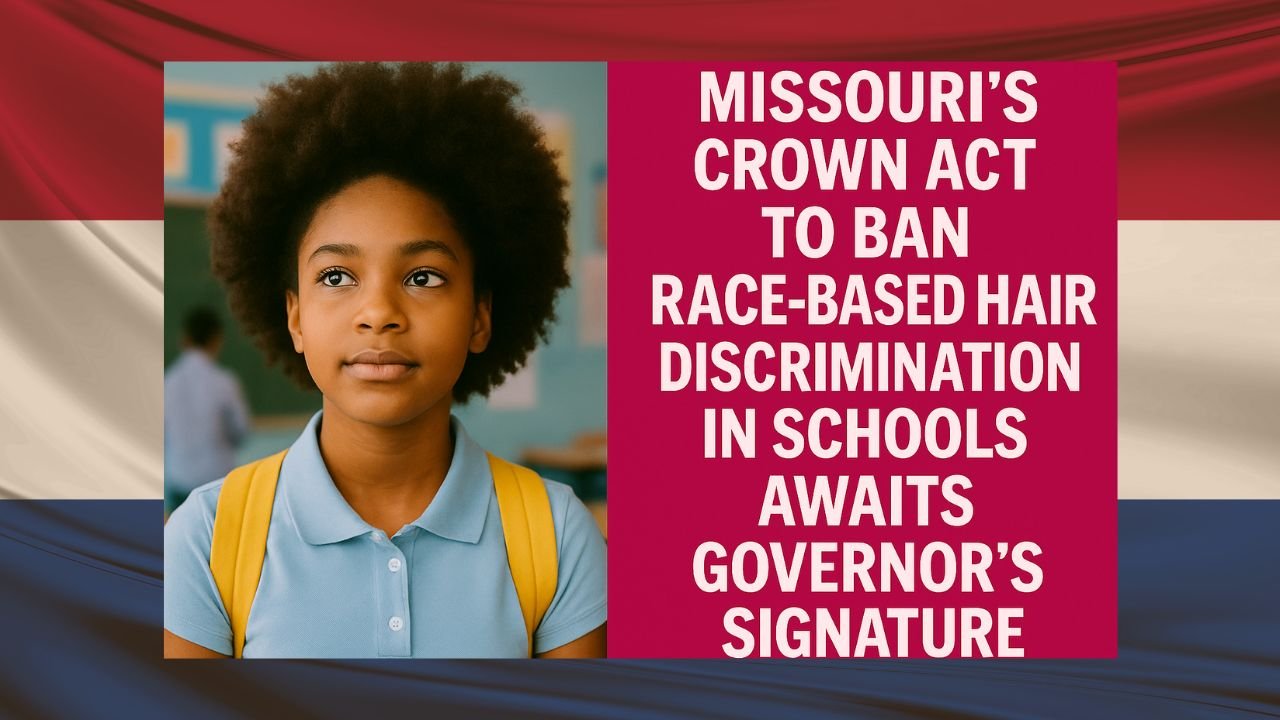Missouri is poised to join 27 states that have enacted laws prohibiting race-based hair discrimination, particularly in educational institutions. The CROWN Act, part of a nationwide push to protect natural hair textures and protective hairstyles, now awaits action from Governor Mike Kehoe, who can either sign it into law or issue a veto.
Background: A Longstanding Legislative Effort
Originally introduced in 2020, the CROWN Act—Creating a Respectful and Open World for Natural Hair—has been championed by State Sen. Barbara Washington, a Democrat from Kansas City.
Despite facing roadblocks in previous sessions, the proposal gained traction this year and was approved in May as part of a broader anti-discrimination and anti-hazing legislative package.
Scope of the Legislation
If enacted, the bill would ban hair discrimination in all educational settings—including preschools, K–12 schools, and higher education institutions—that receive state funding.
However, it does not extend protections to workplace environments, a point that has drawn past criticism from civil rights advocates.
Washington highlighted the significance of the bill by referencing high-profile incidents, such as a student wrestler forced to cut his dreadlocks before competing.
She emphasized that students should not miss out on educational or extracurricular opportunities due to hairstyles like braids, afros, or dreadlocks.
Personal Impact and Opposition
Washington shared that her own career was impacted by natural hair bias, revealing she had once been pressured to straighten her hair and was even denied a job because of her curls.
While most lawmakers supported the bill, Republican Sen. Mike Moon voiced opposition, suggesting the measure was unnecessary. Broader versions of the CROWN Act, such as those filed by State Rep.
LaKeySha Bosley to expand protections to the workplace, have previously failed to gain legislative momentum due to concerns about potential lawsuits and safety regulations in certain industries.
Reasonable Exceptions in Schools
The bill does allow for reasonable safety accommodations. Educational programs, such as home economics or woodworking classes, may still require hairnets or protective headgear when necessary.
The passage of the CROWN Act amendment represents a significant step toward combating racial discrimination in Missouri’s school systems.
If signed into law, the act would affirm students’ rights to express their racial and cultural identity through natural hairstyles, ensuring a more inclusive and respectful educational environment.




